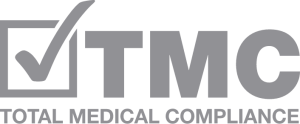In healthcare, maintaining high ethical standards and responsible practices are paramount to providing quality care and preserving patient trust. To achieve these goals, a healthcare code of conduct (HCC) plays a pivotal role.
An HCC is a set of guidelines and principles that govern the behavior and actions of healthcare professionals – it serves as a moral compass that defines standards and expectations for those in the industry. It encompasses healthcare compliance, fraud prevention, ethics, adherence to rules and laws, and safeguarding patient information.
Healthcare compliance within an HCC maintains the integrity and legality of healthcare practices. In following compliance guidelines, healthcare professionals ensure that their practices are accountable and in line with legal and regulatory requirements. This includes regulations related to privacy, consent, documentation, and professional conduct. By complying with these rules and regulations, healthcare professionals contribute to a system that operates on accountability, patient safety, and prevention of misconduct.
Another focus of the HCC is the prevention of fraud, waste, and abuse. Healthcare fraud not only drains resources from the system but also compromises patient care. The HCC educates professionals about the various forms of fraudulent activities and emphasizes the importance of detecting, reporting, and preventing such practices. The code of conduct empowers healthcare professionals to uphold the highest ethical standards and protect the interests of patients and the healthcare system as a whole.
Ethics form the foundation of the HCC. Ethical behavior ensures that healthcare professionals act in the best interest of their patients, prioritize their well-being, and uphold principles such as autonomy, beneficence, and justice. High ethical standards help to safeguard interests of stakeholders and foster a culture of integrity, accountability, and trust.
Ensuring the security and confidentiality of patient health information (PHI) is a vital aspect of the HCC. HIPAA privacy law covers how to handle PHI legally and confidentially. The code provides guidelines on data protection, proper documentation, and the use of technology to safeguard patient information from unauthorized access or breaches.

Total Medical Compliance
6124 Creft Circle
Indian Trail, NC 28079
Phone: (888) 862-6742
Fax: (866) 875-3809
©2023 Total Medical Compliance

Total Medical Compliance
6124 Creft Circle
Indian Trail, NC 28079
(888) 862-6742
Fax (866) 875-3809
©2022 Total Medical Compliance